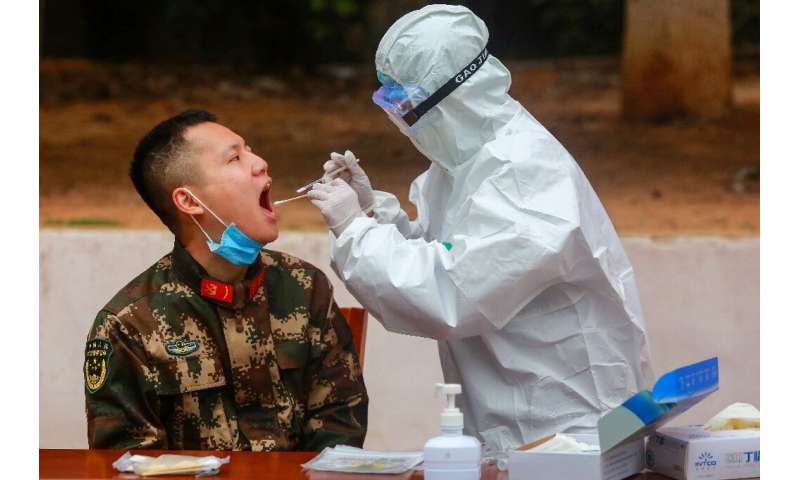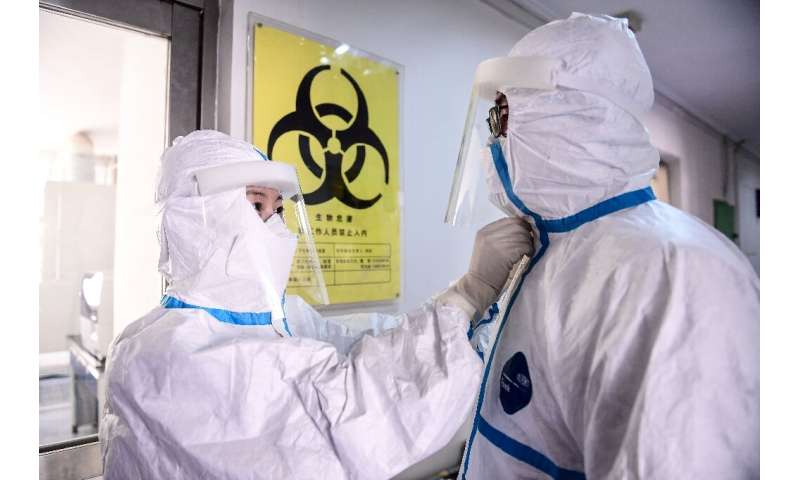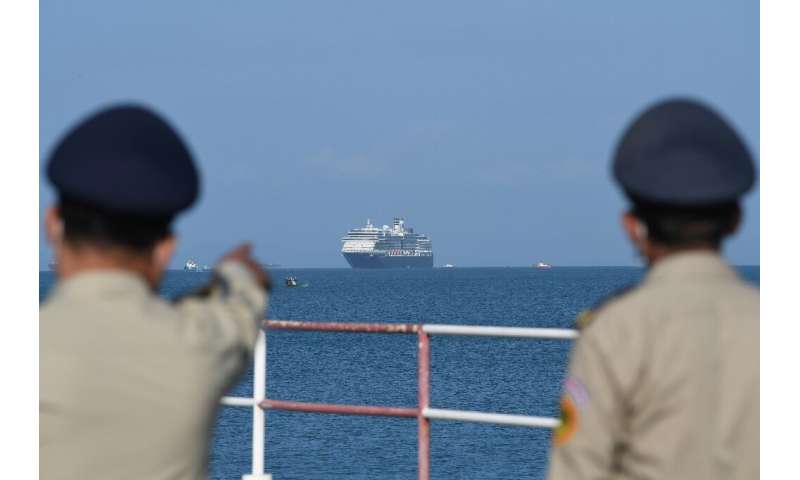
China’s official death toll and infection numbers from a new coronavirus spiked dramatically on Thursday after authorities changed their counting methods, fuelling concern the epidemic is far worse than being reported.
Two top-ranking politicians overseeing the epicentre of the outbreak were also sacked, adding to questions over China’s handling of the crisis, just hours after President Xi Jinping claimed “positive results” in battling the outbreak.
The World Health Organization also quickly countered Chinese reassurances that the epidemic, which has now officially killed more than 1,350 people in China, would peak in a matter of weeks.
“I think it’s way too early to try to predict the beginning, the middle or the end of this epidemic right now,” said Michael Ryan, head of WHO’s health emergencies programme.
The virus has had massive ramifications globally since emerging from the central Chinese province of Hubei last month, with many countries banning travellers from China in a bid to stop people spreading the disease.
In Hubei, where tens of millions of people are trapped as part of an unprecedented quarantine effort, 242 new deaths were reported on Thursday.
Another 14,840 people were confirmed to be infected with the virus, with the new cases and deaths by far the biggest one-day increases since the crisis began.

The jumps raised the death toll to 1,355 and the total number of nationwide infections of the virus—officially named COVID-19—to nearly 60,000.
Hubei authorities said the huge increases were because they had broadened their definition for cases to include people “clinically diagnosed” via lung imaging.
Up until now, authorities had been documenting cases using a more sophisticated laboratory test.
The commission said it looked into past suspected cases and revised their diagnoses, suggesting that older cases were included in Thursday’s numbers.
About 56 million people in Hubei and its capital, Wuhan, are being banned from leaving as part of the quarantine efforts.
Tens of millions of others cities far from the epicentre are also enduring travel restrictions.
China had been praised by the World Health Organization for its transparent handling of the outbreak, in contrast to the way it concealed the extent of the deadly SARS virus epidemic in 2002-2003.

But it has faced continued scepticism among the global public, and US officials have also called for more openness from China’s Communist Party rulers, leading to fears that there may be similarities with the way it dealt with SARS.
Authorities in Hubei have been accused of concealing the gravity of the outbreak in late December and early January.
The death of an infected doctor who had tried to raise the alarm about the outbreak in December, but was silenced by authorities, triggered an outpouring of anger in China.
Transparency
On Thursday, the leaders of Hubei and Wuhan were sacked, the highest-profile political scalps of the crisis.
Hubei’s two top health officials had already been sacked this week.
Analysts said Hubei’s new methodology to count infections might be for medical reasons and could be because Xi wants officials to be more transparent, but the immediate impact was to sow more distrust.

“Oddly, this now is a moment of greater transparency,” Sam Crane, political science professor at Williams College in Massachusetts, told AFP.
“It is not clear if the problem up to now, on this issue, was lack of transparency or simply bad medical practice,” Crane said.
Yun Jiang, a China researcher at Australian National University, said the new methodology may be a “practical measure” because Hubei has a shortage of laboratory testing kits.
“I don’t think the numbers are necessarily manipulated for political purposes but the numbers themselves may not be so trustworthy,” Yun told AFP.
Global havoc
The biggest cluster of cases outside China is on a cruise ship quarantined off Japan’s coast, where 44 more people tested positive for COVID-19, raising the total number of infections on the Diamond Princes to 218.
Several countries have banned arrivals from China, while major airlines have halted flights to and from the country, as hundreds of people have now been infected in some two dozen countries.

United Airlines extended its China flight cancellations into late April.
The outbreak has wreaked havoc on global events, too.
In Spain, organisers of the world’s top mobile telecommunications trade fair, the World Mobile Congress, said the event would be cancelled following an exodus of industry heavyweights over coronavirus fears, including Nokia, Facebook and Vodafone.
It has also disrupted sporting events in China: motorsport’s governing body FIA announced the suspension of the Formula One Grand Prix in Shanghai, originally scheduled for April 19, due to the “continued spread” of the coronavirus.
And this week’s Singapore Air Show—Asia’s biggest—was badly hit by exhibitors withdrawing and low attendance.
US planemaker Boeing warned that there was “no question” the outbreak would hammer the aviation industry and the broader economy.
Source: Read Full Article